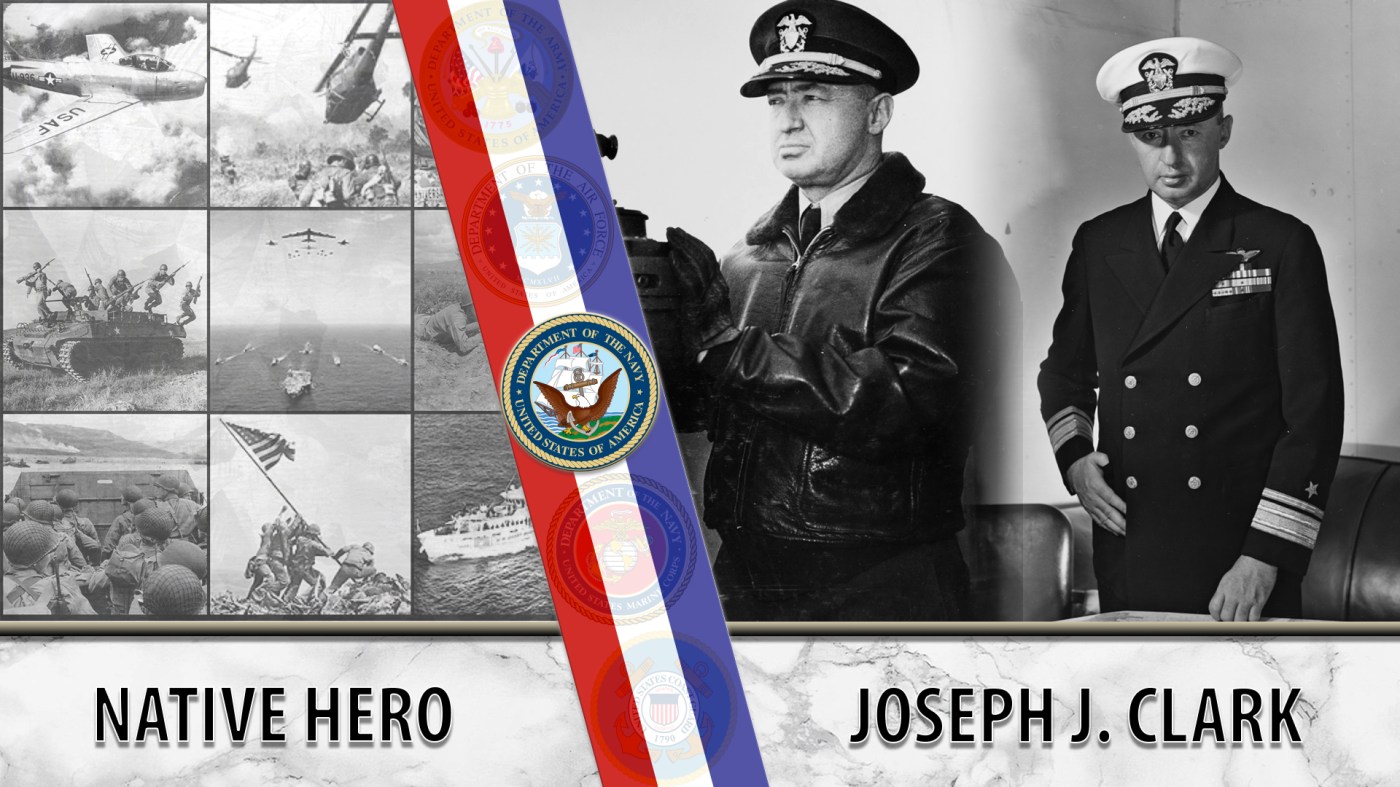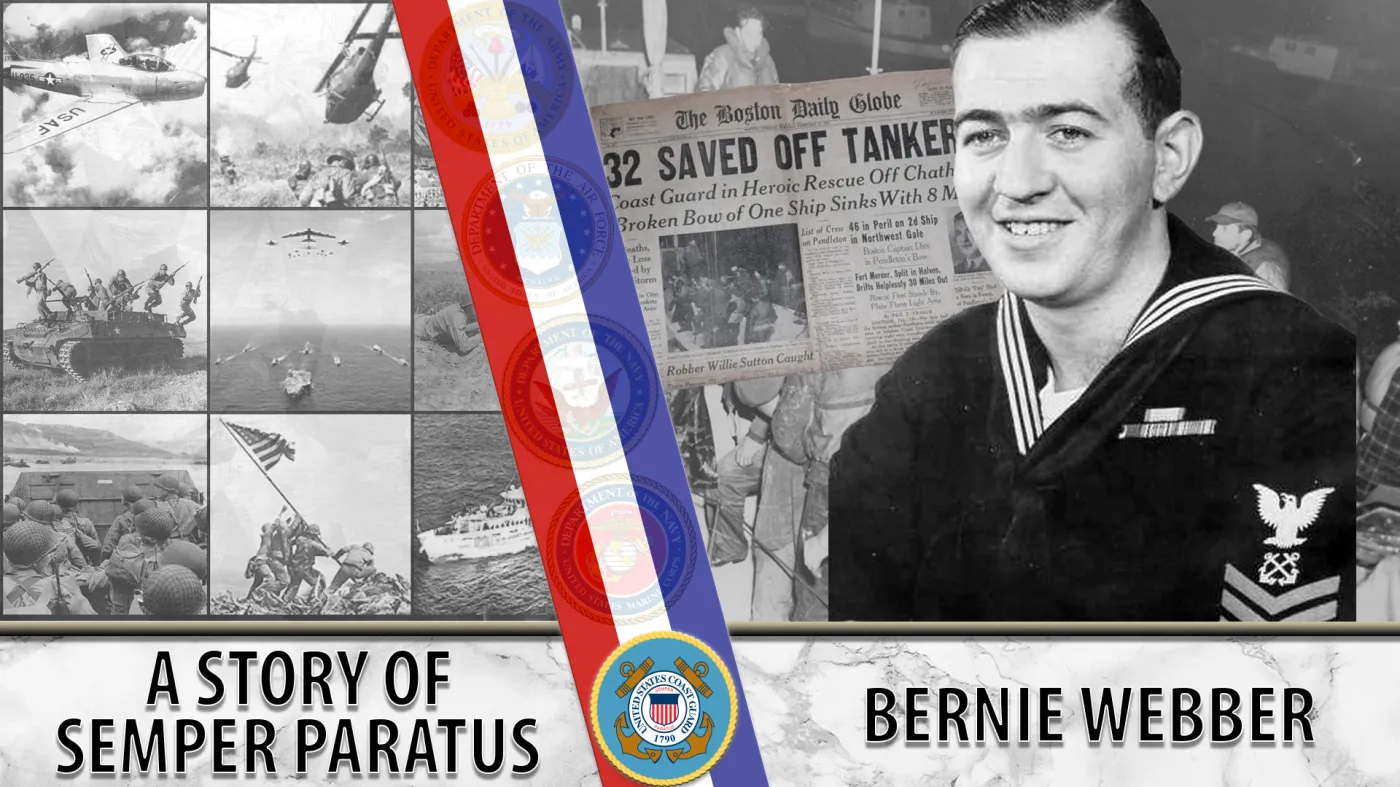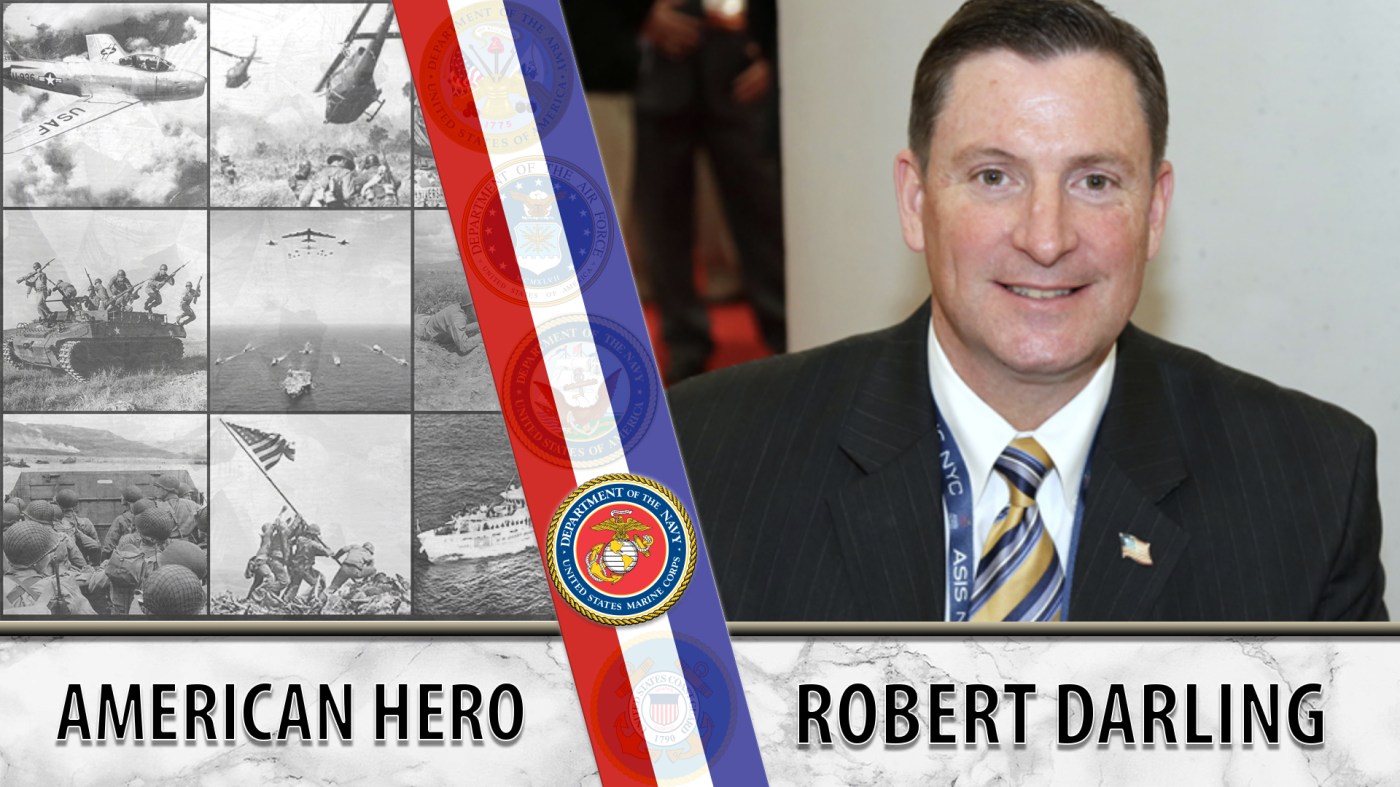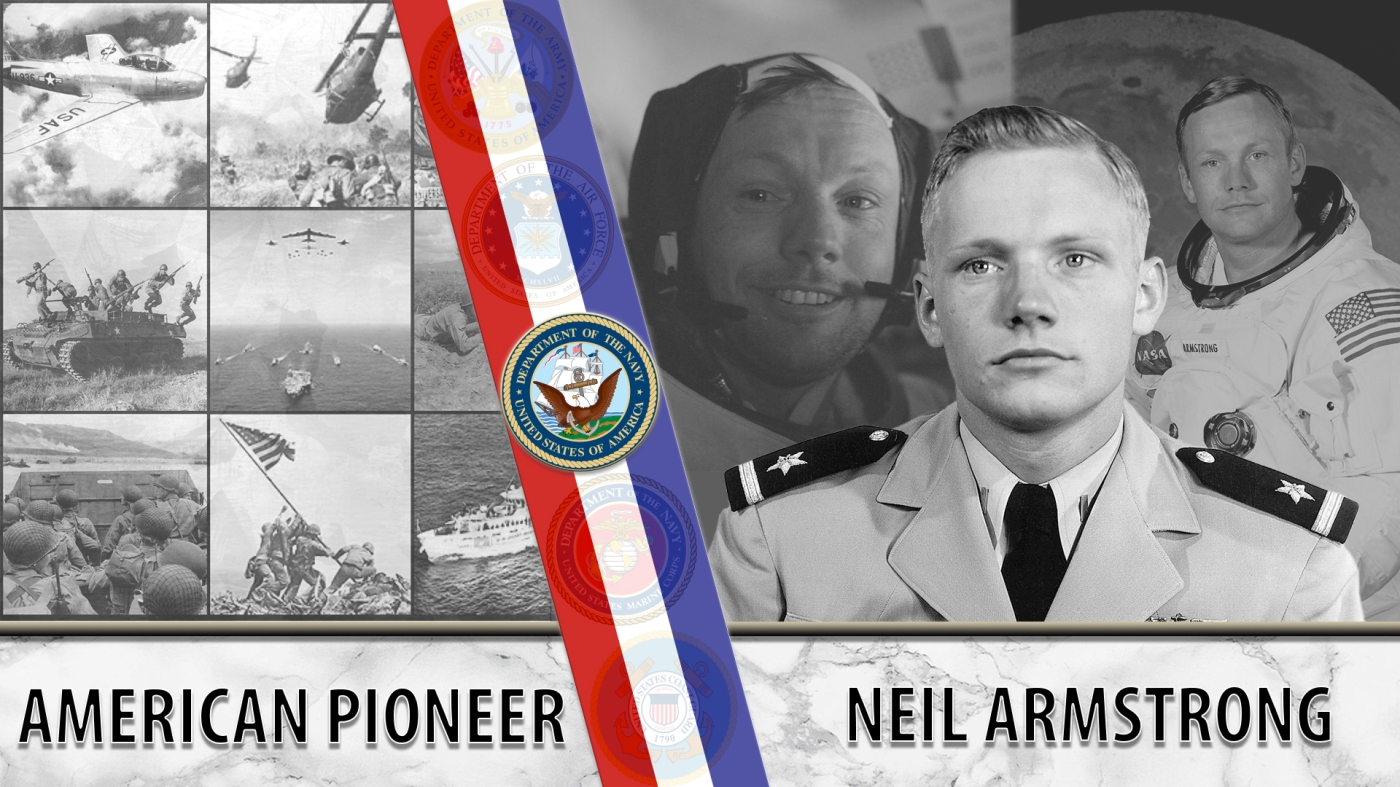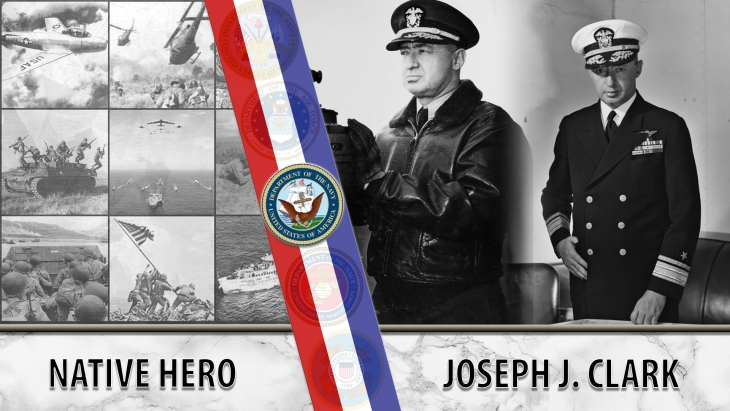
Navy Veteran Joseph James “Jocko” Clark was the first Native American to graduate from the Naval Academy. He served during both World Wars and the Korean War.
Joseph James “Jacko” Clark was born in 1893 in Pryor Creek, Cherokee Nation, as the oldest of 10 children. Clark’s family owned a small farm and he spent much of his youth taking care of his siblings and the house after his mother died in childbirth. After attending classes at Halsell College in Vinita, Oklahoma, and Oklahoma Agricultural and Mechanical College, he was offered an appointment to the U.S. Naval Academy in 1913 and moved to Annapolis, Maryland. While at the academy, he earned the nickname “Jocko” from a friend and kept it for the rest of his career.
In 1917, Clark became the first Native American to graduate from the Naval Academy. He was immediately assigned to USS North Carolina for convoy escort duty in World War I. Although Clark did not see much combat during the war, his time on the North Carolina was formative. USS North Carolina was one of the few Navy ships at the time capable of launching aircraft and Clark became enamored with the new field of naval aviation.
After the war ended, Clark attended flight school at Naval Air Station Pensacola and graduated in 1925. During the interwar period, he tested out new naval aircraft and equipment as a member of the Navy’s Board of Inspection and Survey.
Clark quickly rose through the ranks. By the beginning of World War II, he was serving as the executive officer on USS Yorktown, one of the Navy’s few aircraft carriers. After the Pearl Harbor attack, he was promoted to captain and given command of USS Suwannee, a small and newly built carrier. Clark commanded the Suwannee with distinction in support of the Allied invasion of North Africa. In 1943, he was given command of the new Yorktown, the original having been sunk while Clark was in North Africa. He then led the Yorktown through multiple campaigns in the Central Pacific and was promoted to rear admiral in January 1944.
In February 1944, Clark was given command of Task Force 58.1, a collection of ships that spearheaded the Navy’s assault against Japanese strongholds in the Philippine Sea. There, he gained a reputation as an aggressive commander whose daring attacks continuously surprised the Japanese forces and delighted his men. His leadership style earned him the nickname “Patton of the Pacific.” In August 1944, he led Task Force 58.1 on a raid deep into Japanese territory. The force sunk 15 Japanese ships and only suffered minor American casualties. For his command of Task Force 58.1, he was awarded the Navy Cross.
Later, Clark and Task Force 58.1 aided in the capture of Iwo Jima, Chichijima and Okinawa in Japan. He was so dedicated to carrying out this mission that his men jokingly called their task force the “Jocko Jima Development Corporation” and issued shareholder bonds to every sailor. After the last of the island campaigns, Clark took charge of the Corpus Christi Naval Air Station, where he remained for the rest of World War II.
After completing a variety of assignments during the immediate post-war period, Clark was given command of Fast Carrier Task Force 77 when the Korean War began, where he successfully blockaded much of North Korea. Clark was then given his final and most prestigious position on May 20, 1952: commander of the U.S. 7th Fleet, which was made up of around 225 warships and 70,000 men.
Clark retired from the Navy on Dec. 1, 1953, soon after hostilities ended in Korea. Upon returning home, he was made an honorary chief of the Cherokee and Sioux tribes and worked as an investor in New York. He died in July 1971 after a life of breaking social barriers and overcoming opposition.
We honor his service.
Writer: Michael Rattner
Editor: Christopher Wilson
Fact Checkers: Julia Pack, Monique Quihuis, Kinsley Ballas
Graphics: Katie Rahill
Topics in this story
More Stories
Bernie Webber led one of the greatest Coast Guard rescues in history that was later chronicled in the book and movie, “The Finest Hours.”
As the events of 9/11 unfolded, Marine Veteran Robert Darling served as a liaison between the Pentagon and Vice President Dick Cheney in the underground bunker at the White House.
NASA astronaut Neil Armstrong was the first person to walk on the moon. He was also a seasoned Naval aviator.

